The killing of Walter Scott in South Carolina sees most whites and blacks support murder charges against the officer who was filmed shooting him in the back
The shooting and killing of Walter Scott by a white police officer in North Charleston, South Carolina has once again highlighted issues of race and law enforcement. But this time the latest Economist/YouGov Poll, finds Americans – both black and white – approving of how that shooting has been handled by the judicial system. By nearly ten to one Americans support the decision to charge the police officer involved with murder.
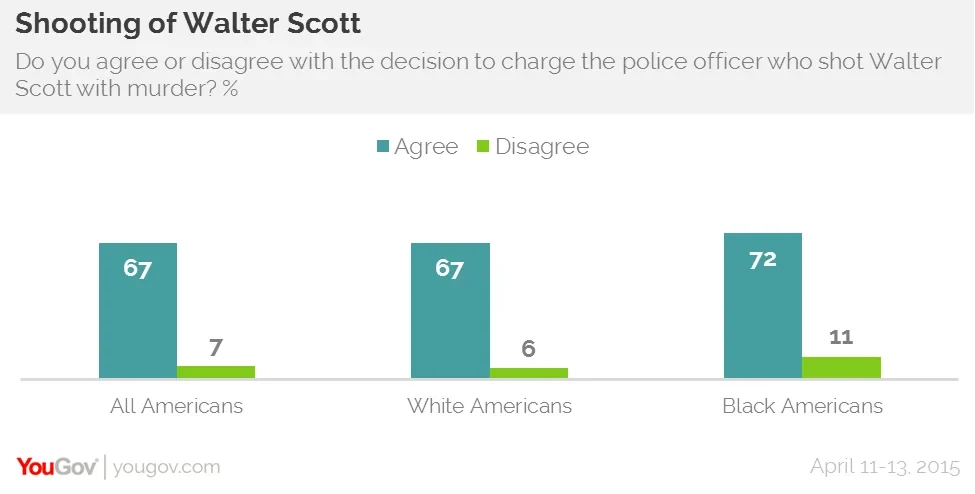
The public’s reaction to the South Carolina indictment differs from its response to the killing of Michael Brown, another black man killed by a white police officer in Ferguson, Missouri last August. A grand jury then did not indict the police officer involved, and opinions – then and now – about that action are divided by race. In this week’s poll, whites say that police officer should not have been charged with any crime, while African-Americans disagree.
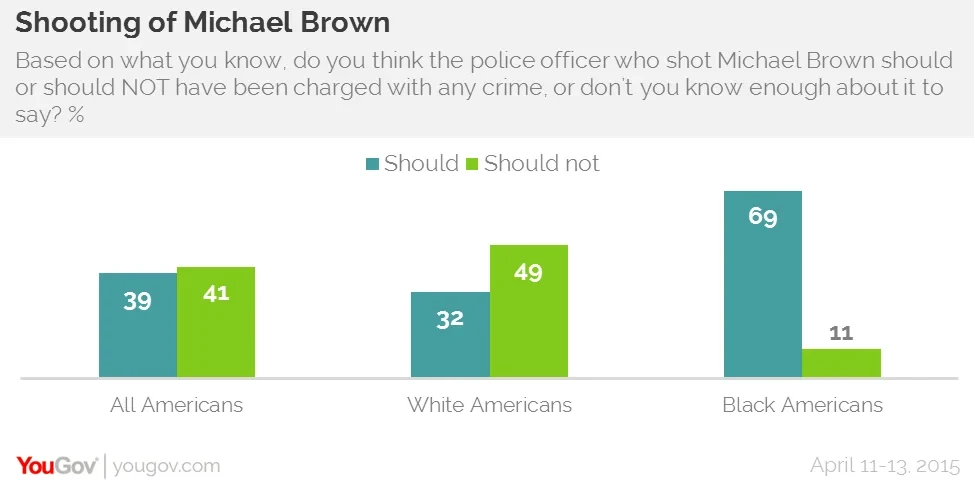
The Department of Justice also refused to pursue charges against the Ferguson officer, a decision which is also racially divisive. Whites support the decision 52% to 33%, while African-Americans do not, 61% to 26%. Hispanics also oppose the decision. This may be one of the few times when some of the strongest support for a decision of a Democratic Administration’s Justice Department comes from Republicans: in this week’s poll, Republicans support to Department of Justice decision not to pursue charges by three to one, while Democrats disagree.
The Department of Justice may have refused to seek civil rights charges against the police officer who shot Brown, but its investigation also reported a pattern of racism and discrimination in the Ferguson police department. Following that report, the Ferguson court clerk was fired and two police officers asked to resign over a series of racist emails sent on government computers. Both white and black Americans support this decision overwhelmingly.
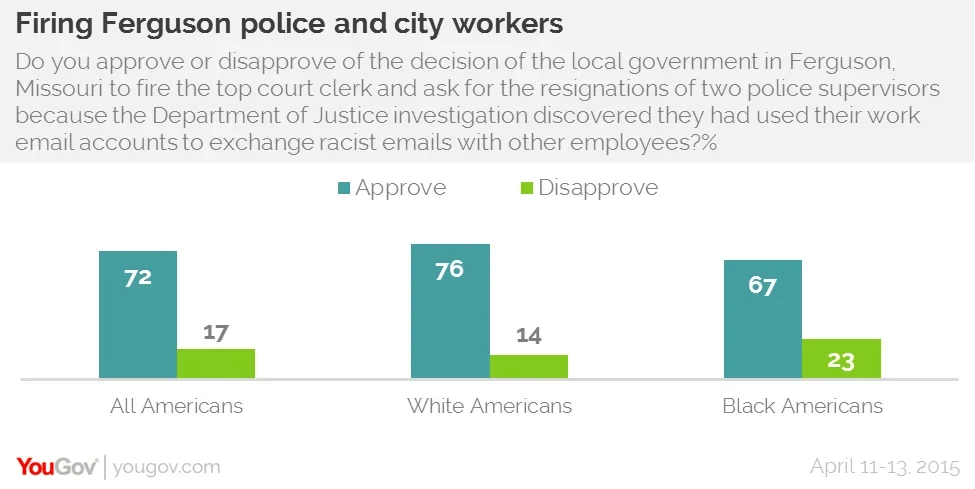
There is a significant amount of distrust about law enforcement that is expressed in this poll: just one in four say that if they were on a jury, they would be more likely to believe a police officer’s testimony than that of another witness who was not a police officer. Americans support the Wisconsin law that requires deaths in police custody be investigated by an outside organization (and they have supported that legislation since last year). And nearly nine in ten Americans favor the use of body cameras on police officers.
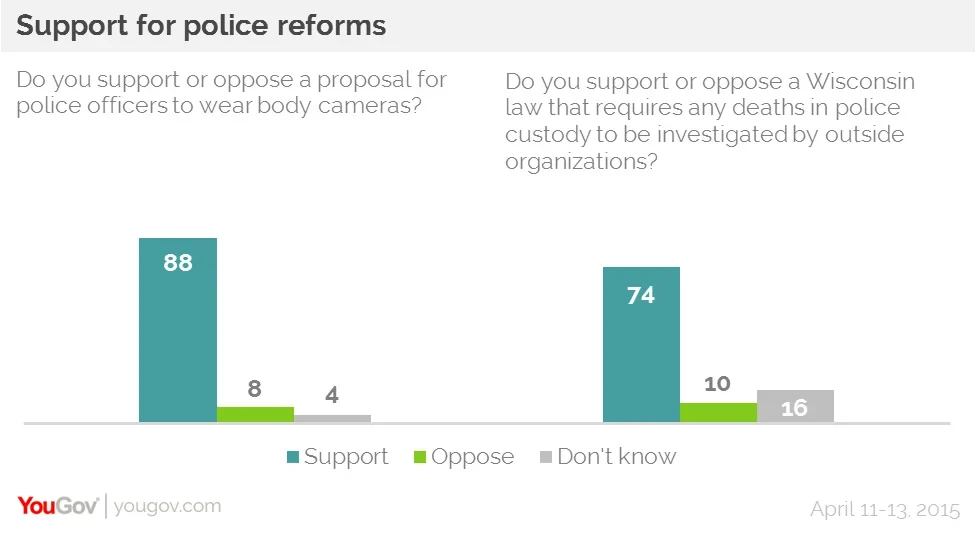
While this poll was in the field, another shooting – this time by a volunteer officer – took place in Tulsa, Oklahoma. It was captured by a body camera, and the shooter has been charged with manslaughter.
There has been a drop in support for leaving the investigation of deaths at the hands of police officers in the hands of the local police department since December, particularly among whites. In December, one in four whites would let the local police investigate police shootings. Now just 15% of whites would do that. Half of whites would have the state investigate, while a quarter would ask the federal government investigate.
In Ferguson, the police department was overwhelmingly white in a majority African-American community. Both whites and blacks think this is wrong, and say a community police department should reflect the racial makeup of that community,
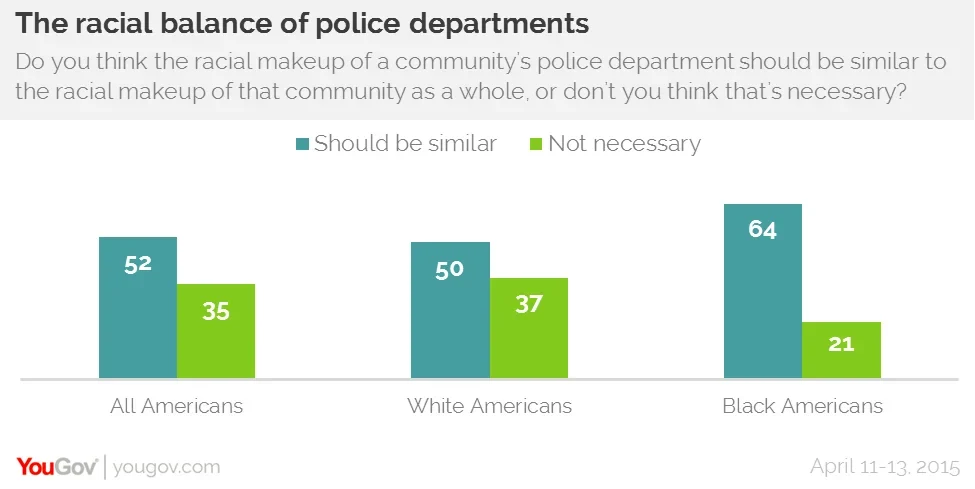
Both whites and blacks agree that racism in general is a serious national problem, but many of them see it as less of an issue in their own communities. For example, nearly six in ten blacks say racism is a very serious problem nationally, while fewer than half that percentage say it is very serious where they live (and for whites, the nearly three in ten who describe racism as a very serious problem nationally drops into single digits when asked about their community).
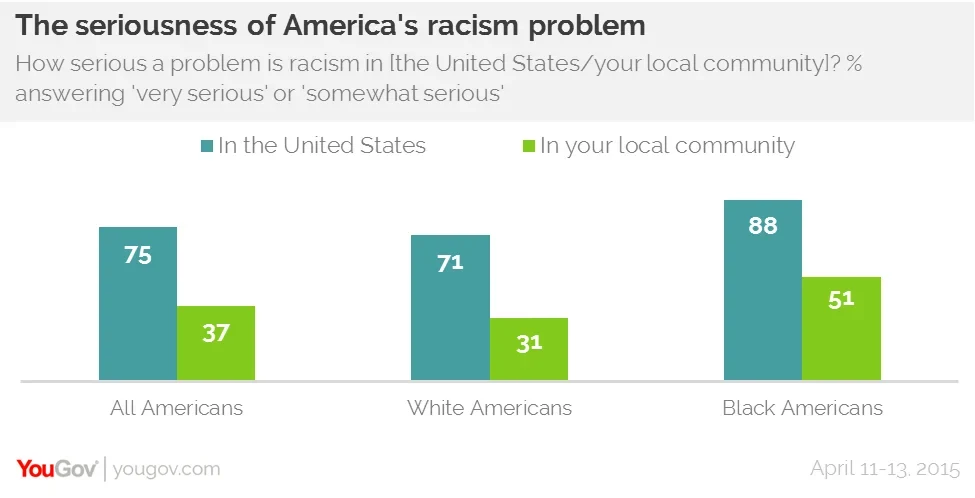
Economist/YouGov poll archives can be found here.









